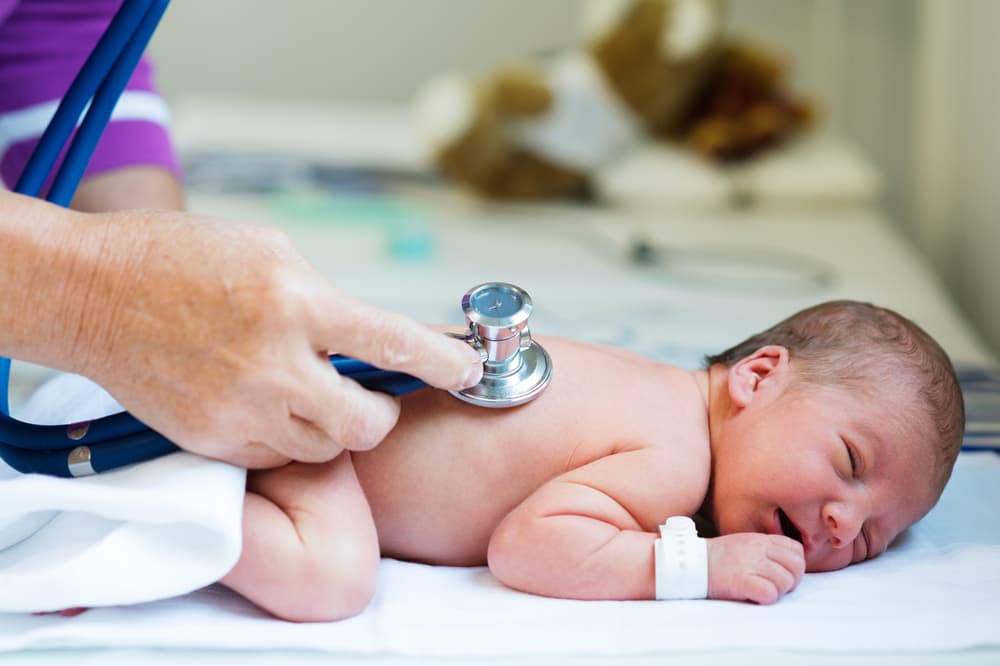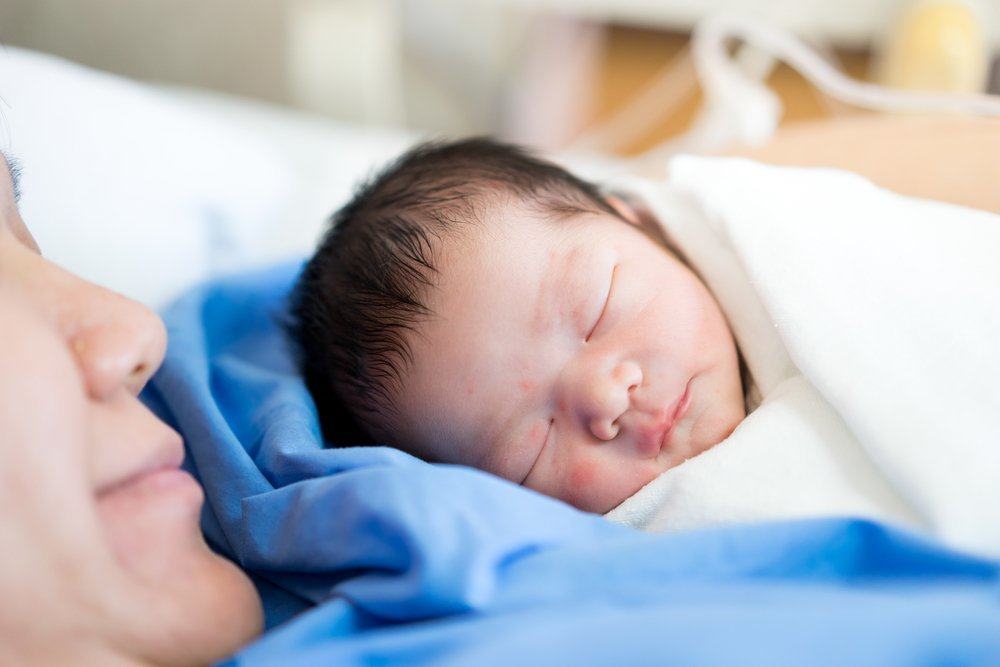Contents:
- Medical Video: Cystic Fibrosis Newborn Screening.
- Newborn screening procedure
- Check up result
- Place and examination fees
- Types of newborn screening
- 1. Apgar
- 2. Hearing test
- 3. Jaundice
- 4. Pulse oximetry
- 5. Congenital hypothyroidism
- 6. Other checks
Medical Video: Cystic Fibrosis Newborn Screening.
Health screening or examinations are usually carried out by adults to detect potential diseases. But do you know, if health screening also needs to be done by a newborn? Newborn screening is done to detect the possibility of a disturbance from the beginning of the birth. So if later a disorder or abnormality is found, the baby can be treated as early as possible.
Screening in infants is usually done before leaving the hospital, or better if done before the baby is seven days old.
It's good if you learn about screening in infants before the birth process. Because the earlier you learn, you will be more prepared to face the whole process of screening after birth.
Newborn screening procedure
To do the screening, usually the baby's heels will be pierced to collect small blood samples. Parents are welcome to be part of this process by holding their baby. Studies show that when a mother or health worker entertains a baby during the blood collection process, the baby will not cry.
After the blood is taken, the health worker will put the drops of blood on the filter paper card to make some "dry blood points." The screening card will then be sent to the laboratory for analysis.
Check up result
If the results of the examination are negative, you will usually not be contacted by the hospital. Negative results indicate that your baby is most likely not suffering from an illness.
However, if the results of the examination are positive, you will be contacted by the hospital for further examination. If the results of the second examination are positive, the doctor will tell you what steps to take.
The faster the results of newborn screening are obtained, the parents can determine how best to care for the baby. The reason is, each baby is different and requires different treatments.
Place and examination fees
Screening tests can be done by the laboratory at the hospital where the baby is born. Or you can take your baby to a laboratory that provides screening for newborns.
The costs for baby health screening tend to be affordable. In fact, some hospitals have included this test as part of a children's health check. Therefore, before you give birth you should first check whether your hospital or maternity clinic provides screening facilities.
Types of newborn screening
1. Apgar
This test is done twice, namely in the first minute and the first five minutes after the baby is born. The Apgar test is a series of examinations carried out to assess the ability of a newborn to adapt to life outside the mother's womb.
There are five things examined in this test, namelyappearance (skin color), pulse (heart rate frequency), grimance (Respiratory), activity (active or not muscle tone), and reflex (reaction to stimuli).
2. Hearing test
Hearing tests in infants consist of two types, namely with Otoacoustic Emissions (OAEs) and Auditory Brainstem Response (ABR). This test will usually last for 10 minutes.
3. Jaundice
This test is done to check the bilirubin level in the baby through a blood test or using light meter, which can detect billirubin through the skin.
4. Pulse oximetry
This test is done to check the oxygen level in your baby's blood. Because, if the oxygen level in the blood is low or fluctuating, it tends to be a sign of being Critical Congenital Heart Defect (CCHD) or in Indonesian critical congenital heart disease.
Congenital heart disease usually occurs without symptoms but can cause death if no immediate treatment or action is taken.
5. Congenital hypothyroidism
Congenital hypothyroidism can cause sufferers to experience growth disorders or mental retardation. This screening can help you detect the possibility of congenital hypothyroidism. Because the disease is usually only recognized after symptoms arise or manifest after the child is approximately one year old.
Congenital hypothyroid screening is best done when the baby is 48-72 hours old or before the baby comes home with the parents from the hospital.
6. Other checks
There are still many health screening that can be done on babies. Apart from those mentioned above, several other screenings you can do are screening for phenylketonuria, galactosemia, sickle cell disease, biotinidase deficiency, congenital adrenal hyperplasia, tyrosinemia, cystic fibrosis, MCAD deficiency, severe combined immunodeficiency, and toxoplasmosis.
If you are in doubt, you can consult or ask your doctor before the birth process so that you are ready about the various newborn screening that needs to be done.













